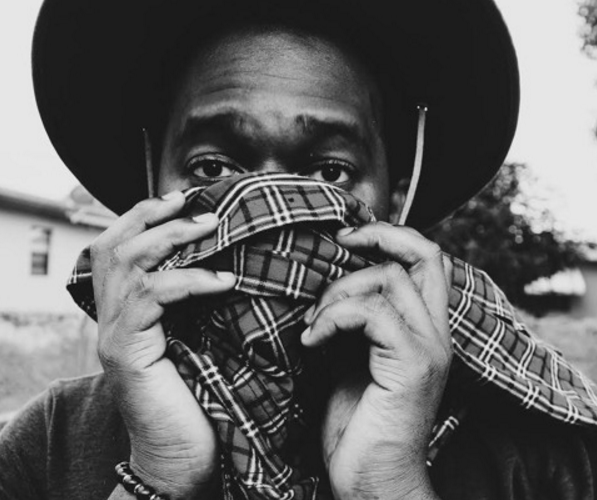Dáramólá is a well-read Nigerian producer and singer based in Miami, but being the nephew of a member of Ebenezer Obey’s Inter-reformers band and having been born to a mother who’s a singer herself, I wonder why he bothered getting an MSc and an MBA to begin with. Dáramólá was born to do music, his mom is Gbemi Olaleye a veteran singer who’s behind the popular gospel tune “Leta Ayo”.

Gbemi Olayele (Youtube)
The influence of Mrs. Olaleye, God and gospel are very strong on her son’s debut album The Last Time I Tried. They’re also evident in his musical journey. Up until this point, Dáramólá made a name for himself primarily as songwriter and producer in Christian music circles in the States, working with the likes of gold-selling rapper Lacrae and the critically-acclaimed Flame. Dáramólá notably won a GMA Dove Award for his production work on the latter’s 2013 album Royal Flush. At that time, he went by ‘D-Flow’ but the talented artist has since let go of that name and now uses one that promotes his ancestry without shame.
The Last Time I Tried is Dáramólá’s debut album and is a follow-up to the Nothing Really Matters 1 of 2 project released in 2016.
The album is mightily impressive all round but if you don’t have 45 minutes to vibe out to the whole thing, these are the essential songs you need to listen to.
TLTIT and Palmgrove Estate
The project sounds like it has 2 sides – the aftermath of a relationship that was recently broken up and the sombre soundtrack to Dáramólá’s walk with God. He goes into detail on how the relationship ended on the album’s title track, surmising that girls in Miami all have one thing in common as he wallows in self-defeat.
On “Palmgrove Estate” though he retraces his footsteps back to Lagos – think Adam in the Garden of Eden, now substitute Adam with Dáramólá and the Garden of Eden with Palmgrove Estate and you have the first video off the The Last Time I Tried album.
The only thing missing is Eve. Dáramólá isn’t ready for that distraction though, still picking up the pieces of one failed relationship, he sings:
Ay shorty looking gorgeous
But I ain’t ’bout it, I’m focused
My world very different
Tuwaraya Mama
On other songs on the album, Dáramólá sounds like he’s moving on, or at least getting there, these things take time. TLTIT gives you a view into what the singer is going through as he does – what kind of girl he’s looking for and which he can’t stand. It’s amazing how much of his thoughts Dáramólá is able to pen down and communicate so emotively.
One thing that’s evident about the singer’s music is that he isn’t afraid to color it with his native language – Yoruba. On “Tuwaraya Mama” though, he borrows a line from an iconic Igbo praise song but flips it brilliantly to give thanks to God, not for what He’s done in general, but specifically for bringing a woman to him who carries herself in a classy and attractive way.
Listen below:
Towards the end, Dáramólá references another evergreen tune from the East, the Peacock Guitar Band’s “Eddie Quansa”.
I Used To and Fake Friends
Dáramólá also touches on his other relationships on this album and not just his relationship with God and his love life – friendship takes center stage as the album comes to a close. On “I Used To”, he looks back on the things he used to do with his friends when they were younger with a different view. The singer has made some changes to his lifestyle but he has no regrets about leaving old habits behind.
Dáramólá has had to reevaluate those he keeps around as well. Holding his friendships to the light, he’s discovered the fakeness in some of them. The song “Fake Friends” is therefore self-explanatory. Dáramólá is tired of being lied to and not being able to trust those around him. The record may have ended with a prayer, but Dáramólá is conflicted on whether or not to forgive since they do know what they’re doing. Listen below:
The mood for “Fake Friends” was set by the melancholic Traffic (Interlude) but the LTIT album as a whole is atmospheric.
Dáramólá produced most songs on the album himself and the cohesion between thought and sound is remarkable. His sound lives in that musical no man’s land bordered by R&B and hip-hop that many call alternative R&B. The album is heavy without being dark, Dáramólá’s love for God shines through with every listen and you know light and darkness don’t mix.


